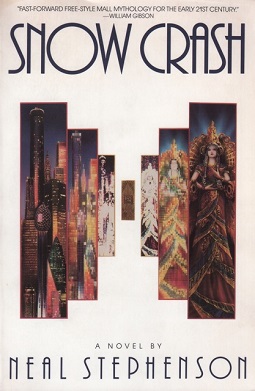Sci-Fi Satire
No matter how many times I’ve read The Hitchhiker's Guide to the Galaxy, and it has been MANY times now, it never fails in inducing endless laughter, joy and nostalgia. To me, it was a childhood staple. Before I was even old enough to read I was quoting this book, though I didn't didn't know that that was what I was doing, because my Uncle David was always going around saying things like, "Don't forget your towel" or "Don't panic" or "There's a frood who knows where his towel is at". Beneath the surface of utter hilarity, Adams used sarcasm and wit to make some rather poignant statements about life and the manner in which we are going about living it. This is one reason the book is so appropriate for multiple readings. You will understand things you did not the first time around because of the author’s subtle, ideas and approach to writing. One brilliant thing that Adams does is to step away from the action every so often to present interesting facts about the universe as recorded in the Hitchhiker's Guide; here we learn about Vogon poetry, the Ravenous Bugblatter Beast of Traal, Trans Galactic Gargle Blasters, and other intriguing pieces about life in the wild universe Adams created. He even gives the reader the ultimate answer to the question of life, the universe, and everything in between. I love Douglas Adams' writing style. The sort of heavy handed, matter-of-factly way that he describes things, and can go off in tangents to describe something in detail is very interesting. I don't know of another author who would so abruptly interrupt the story of the two main protagonists stuck in an alien spaceship to describe in full detail the mechanization and theory of the fish they put in their ears to understand alien language.



